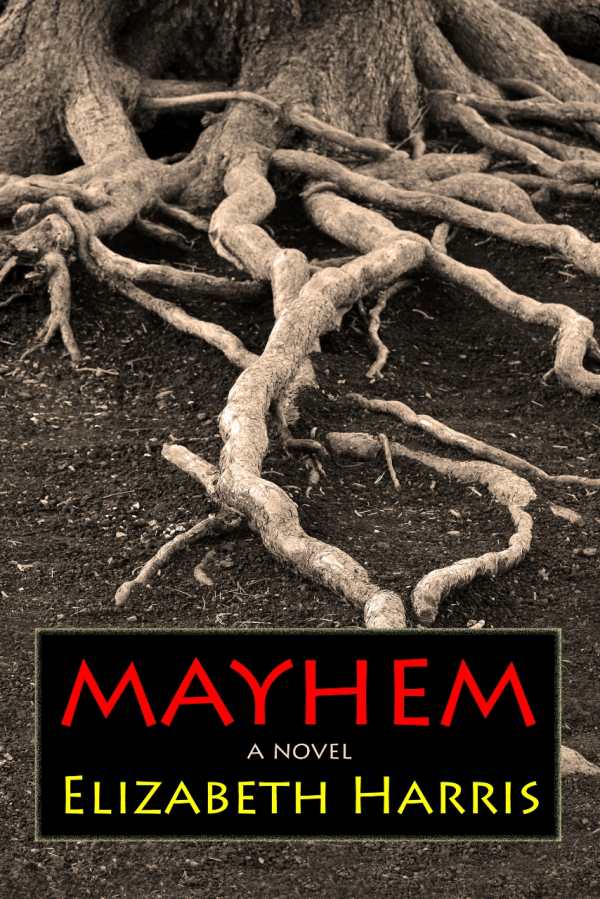Mayhem
Three Lives of a Woman
- 2015 INDIES Finalist
- Finalist, Literary (Adult Fiction)
A moment of human weakness irrevocably changes one woman’s life during the Depression in this unforgettable work.
How can a moment of weakness, the slightest lapse in judgment, forever alter someone’s life? How can any small, trivial human act lend itself to the irreproachable power of myth? In her ambitious new novel, Mayhem: Three Lives of a Woman, Elizabeth Harris masterfully explores these and other questions of time and fate. Harris weaves an unforgettable tapestry of Depression-era Central Texas, in which the taut fabric of civil life unravels in violent and incorrigible threads.
Mayhem starts off slowly. The author, herself admitting to be a fictional construct, recalls from her childhood the mysterious figure of Evelyn Gant, the quiet, live-in caretaker of the matronly Rebecca Theriot. It is Gant’s elusive past, the rumors and legends of her fall from grace, that the authorial narrator seeks to understand. Harris builds the textures and tensions of Gant’s story in an absorbing fashion, pulling both author and reader into the tangled thick of frontier life. In a critical moment of human frailty, we see how a well-respected ranching wife is unfairly and forever disgraced.
Like her narrative structure, Harris’s prose is layered and complex. Perhaps it’s no coincidence that the narrator mentions reading Virginia Woolf. Reminiscent of Woolf, Harris’s sentences teem with detail and nuance: “[Evelyn] loved the purity and clarity of certain musical tones, which were like the tastes of ice and fresh mint at Aunt Gainer’s or the sharp brilliant greens and blues of Aunt Charlotte’s embroidery thread.” Other passages achieve the austere rhythms of William Faulkner: “The swish of the stained canvas bag said, poor Charlie, poor Charlie. Perch from the trap wriggled rainbows in the sun.”
To Faulkner and Woolf, we should add Wallace Stegner, Walter Van Tilburg Clark, Cormac McCarthy, and Annie Proulx as comparisons. Like these authors, Harris plumbs Western life, and the Western myth, to amazing depths, uncovering both savagery and humanity. The novel’s ultimate power hinges on the use of dramatic irony: that we, as readers, know the inner details of an event that characters in the book can only poke at. Mayhem is a work profound and unshakable. A masterpiece.
Reviewed by
Scott Neuffer
Disclosure: This article is not an endorsement, but a review. The publisher of this book provided free copies of the book to have their book reviewed by a professional reviewer. No fee was paid by the publisher for this review. Foreword Reviews only recommends books that we love. Foreword Magazine, Inc. is disclosing this in accordance with the Federal Trade Commission’s 16 CFR, Part 255.

